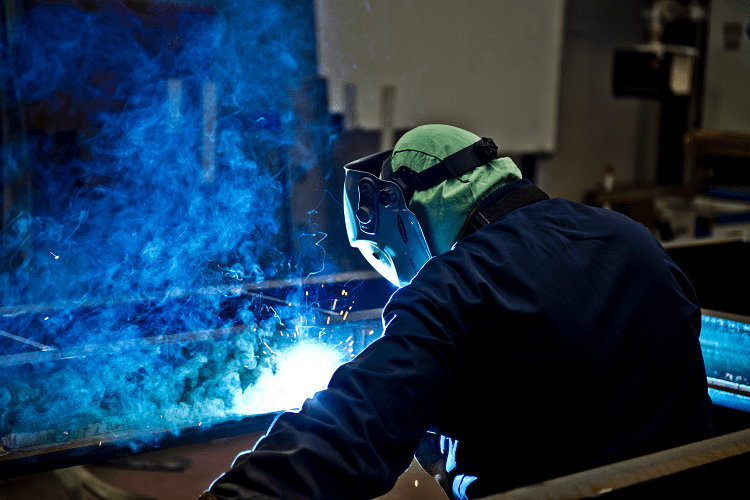In the field of metallurgy, flux remover is applied to stainless steel and other alloys to prevent them from oxidizing when they are heat treated. However, when it comes to brazing stainless steel, flux is not the go-to solution for preventing oxidization while the metal is treated.
Instead, the alloy is typically placed in an “atmosphere-controlled” furnace that removes oxygen from the heating chamber and creates an environment where the metal can be treated without experiencing the ill effects of oxidation: a tarnished appearance and weak dimensional stability.
Stainless Steel’s Metallurgical Profile
Stainless steel is a chromium alloy that contains at least 10.5 percent chromium by mass. Chromium is the chemical element that gives stainless steel its characteristic shine and excellent anti-corrosive properties under normal conditions. However, when chromium is heat treated in the presence of oxygen, it oxidizes rapidly, causing the metal to develop a tarnished, drossy appearance. The layer of oxide can also weaken the assembly’s braze joints.
This is why stainless steel is typically brazed using a furnace that maintains a pure nitrogen or hydrogen atmosphere, or removes all gasses from the heating chamber. Furnaces that are commonly used to braze stainless steel assemblies include: atmosphere-controlled continuous furnace, vacuum furnaces, and bell annealers. However, there are occasions when an assembly is simply too large to fit inside a furnace and must be brazed in open air.
Brazing Stainless Steel in Open Air
When a stainless steel assembly must be brazed in open air, the braze joints are formed using a high-powered torch that melts the filler metal and causes it to fuse the workpieces into an assembly when it cools. When this procedure is performed, flux should be applied to the braze joints and the adjacent areas to prevent a stable layer of oxide from forming on the metal.
As long as the flux is formulated to use with stainless steel, it prevents the metal from oxidizing. However, it isn’t uncommon for flux to leave behind a residue. When this happens, flux remover for stainless steel can be applied to remove the residue. Without the application of flux remover, sections of the assembly that were covered in flux are likely to have a tarnished appearance.
Where to Find a Flux Remover
When choosing a flux remover for stainless steel, it is important to select a product that has no ingredients that tarnish chromium alloys, such as ammonia and corrosive elements that the EPA lists. At Ecolink, we provide flux remover whose natural formulation makes it an excellent choice for treating sensitive metals. If one of our ready-made solutions doesn’t meet your needs, we will create a custom product that addresses your unique requirements.
For assistance choosing a flux remover for stainless steel, call us today at (800) 563-1305, or refer to the contact page on our website. We look forward to providing you with a flux removal solution that is safe to use on stainless steel and safe to use in the work environment, as well!















